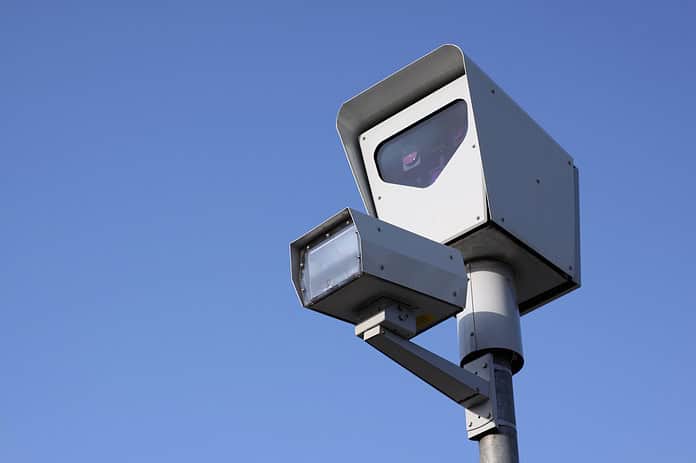A trio of governing bodies convened for an interlocal governmental meeting on March 14 to discuss the safety of children and crossing guards in school zones and what should be done to address this issue. The hot button topic that was on the table was the implementation of speed cameras to facilitate this. The representatives from the Hernando Board of County Commissioners, the school board, and Brooksville City Council were quick to dismiss the idea with only one member voicing their support being Commissioner Jerry Campbell. Other solutions, such as more signage and lights, were presented to greater support.
When the conversation on the topic began, Commissioner Steve Champion noted a critical piece of the argument against speed cameras in school zones: “It will be very unpopular with citizens.” It is an invasion of privacy, he continued, and he reminded everyone at Thursday’s meeting of how averse citizens were to red-light cameras that were installed and eventually taken down years ago. He thanked the school board for the seamlessness of their “Find My Bus” phone application, which is extremely detailed and lets parents know when their children get on and off the bus from school. Commissioner Champion urges parents to download this “outstanding tool.”
Commissioner Brian Hawkins was on the same page but approached the subject from a legal angle. Cases involving traffic recordings have been “clogging up the court system” in southern Florida in instances where people are borrowing vehicles. Hawkins mentioned a time when his wife had received a ticket due to a red-light camera and the headache that ensued because she had been driving his car. Cases like this stack and use up valuable time that could be put towards other pressing issues, and there are plenty of variables that need to be considered.
“I think that it is a little bit of a government overreach and there are just too many things that could happen that could go wrong,” Hawkins said. “I do not think it is going to prevent speeders. If anything, I think it is going to grow government.”
Some administrators like Shannon Rodriguez turned to the question of school buses later in the meeting. If more children can be helped to school via this mode of transportation, perhaps that could alleviate safety concerns. The issue with this avenue is that busing has a tight budget, and kids of all ages may only ride the bus if they live more than two miles away from their respective schools. The rest must find their own way. “I just think that we should be able to give every child an opportunity to get on a bus and be safe,” said Rodriguez.
Commissioner John Allocco agreed that speed cameras were not the way to proceed. He looks to work with school board members who have the data, “boots on the ground,” and an overall stronger sense of where precautions need to be taken before the county takes drastic action. Once the subject had been broached by other members, Allocco also suggested the school board go before legislative delegation meetings around the state and present requests for busing exceptions for elementary school children. Board Member Elizabeth Narverud suggested that more overt signage in the center medians of school zones might help drivers who fail to see pre existing markers due to large trucks or other reasons.
Sheriff Al Nienhuis was given an opportunity to speak during the meeting as well, and he echoed the sentiments of nearly every other attendee in stating that “he is not a huge fan of” speed cameras. His offices have extensive data on the subject as they have set up “speed spies” to identify areas where people are grossly exceeding the speed limits, and he believes the situation is not as significant as one might think. Combine this with the fact that the HCSO would need to employ someone to review these recordings, and Nienhuis feels that it would not generate enough money to justify the technology’s existence.
Improving school zones through “environmental design,” he posited, could help to remind people to slow down as he feels that drivers are not intentionally speeding through these areas most of the time. The sheriff also provided updates on the statuses of the two crossing guards who were struck by a speeding vehicle in February, which was the event that prompted this discussion.
“I am happy to report that the one that was injured more seriously had just went home within the last couple days,” Sheriff Nienhuis said. “He is in good spirits. We have been doing our best to try to take care of him, but in that particular case, that was a drunk driver who was fleeing a hit-and-run accident. I can tell you, cameras would not have helped that incident at all.”
Needless to say, the safety of students is paramount, but speed-based cameras were not popular among government officials on Thursday. The county leaders will continue to look at options to increase student safety moving forward.

